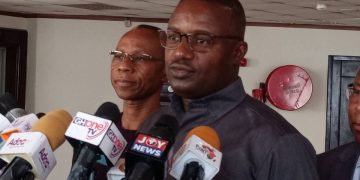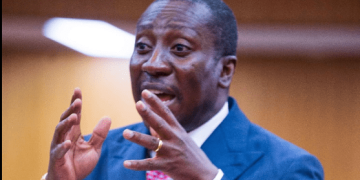Member of Parliament for Yapei-Kusawgu and Ranking Member of the Mines and Energy Committee in Parliament, John Jinapor, has lambasted the government over the rising cost of living in the country.
According to him, the rising prices of essential commodities, stagnant wages, and the untold hardship being put on ordinary Ghanaians are unacceptable.
Speaking at a press conference on Tuesday, July 2, Jinapor addressed the recent increases in electricity tariffs, diesel and petrol prices, as well as the cost of LPG and cement.
He underscored the disparity between these rising costs and the minimal increase in wages, which have remained stagnant amid the economic challenges.
“We on the minority side, taking cognizance of the serious and high cost of living, which is having a toll on various families, deem it appropriate to call on the Akufo-Addo government to do something about the exacerbating nature of the cost of living,” Jinapor stated.
John Jinapor criticized the government’s economic management, pointing out that despite assurances of growth the Cedi continues to depreciate, exacerbating the financial strain on citizens.
“The problem goes beyond rhetoric. The next government will inherit a broken economy,” Jinapor warned, and accused the current administration of failing to meet financial obligations, including the restructuring of Independent Power Producers (IPP) liabilities.
Jinapor also called for transparency regarding government borrowing, alleging misuse of funds intended for infrastructure development and debt restructuring.
Jinapor emphasized the need for pragmatic measures to resolve the economic challenges facing the country and stressed, “This is the time for the President to swallow his pride and call for a national dialogue on the state of Ghana’s economy.”
Jinapor painted a stark picture of the economic realities facing Ghanaians, particularly in terms of purchasing power and the affordability of basic necessities.
The Ghanaian worker today, he said, is worse off than he was under President Mahama, be it procurement of rice, purchase of oil, cement, rent, or any key issue that confronts them.



















































































